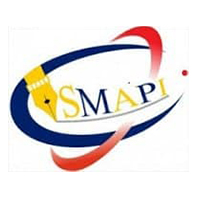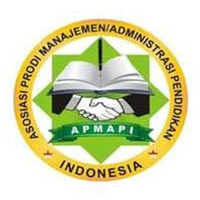Leadership Strategies of Elementary School Principals in Developing Teacher Professionalism
DOI:
https://doi.org/10.21831/jump.v2i1.30675Keywords:
teacher professionalism, teacher professional development, principal leadershipAbstract
Principal leadership plays a vital role in school effectiveness through its direct effect on teachers. This study aimed to explore the leadership strategies performed by school principals to develop teacher professionalism at elementary schools. The theoretical underpinnings of interpretivism guided this study. It employed in-depth semi-structured interviews and document analysis to collect data. The interviews were conducted with nine elementary school principals in Klaten district, Indonesia. Data were analyzed using the grounded theory data analysis method, specifically the use of constant comparison through open coding. The 'open-coded' data were then analyzed using the analytic induction technique. The results show that the principals employ a wide range of leadership strategies to develop teacher professionalism. The strategies include providing exemplary behavior and attitude, fostering work discipline, motivating teachers, providing educational supervision, and encouraging teachers to participate in continuing professional development programs.References
Aedi, N. (2014). Pengawasan pendidikan. Tinjauan teori dan praktek. Jakarta: Rajawali Press.
Ainurrofiq. (2010). Kiat menjadi guru profesional. Jogjakarta: Ar-Ruzz Media.
Ambarita, A. (2015). Kepemimpinan kepala sekolah. Yogyakarta: Graha Ilmu.
Benzies, K. M., & Allen, M. N. (2001). Symbolic interactionism as a theoretical perspective for multiple method research. Journal of Advanced Nursing, 33(4), 541-547. doi: 10.1046/j.1365-2648.2001.01680.x
Collins, J. (2001). Good to great: Why some companies make the leap and others don't. New York: Harper Collins.
Daryanto. (2008). Administrasi pendidikan. Jakarta: Rineka Cipta.
Dharma, S. (2005). Manajemen kinerja. Yogyakarta: Pustaka Pelajar.
Fathurrohman. (2012). Belajar dan pembelajaran meningkatkan mutu pembelajaran sesuai standar nasional. Yogyakarta: Teras.
Harris, A. (2010). Effective leadership in challenging schools. In P. Peterson, E. Baker, & B. McGaw (Eds.), International Encyclopedia of Education (3rd ed., pp. 777–782). London: Elsevier, Ltd.
Jacobson, S. (2011). Leadership effects on student achievement and sustained school success. International Journal of Educational Management, 25(1), 33-44. doi:10.1108/09513541111100107
Karadag˘, E., Bektas, F., C¸ og˘altay, N., Yalc¸Ä±n., M. (2015). The effect of educational leadership on students' achievement: a meta-analysis study. Asia Pacific Educ. Rev. 16, 79-93. doi: 10.1007/s12564-015-9357-x
Leithwood, K., Harris, A., & Hopkins, D. (2008). Seven strong claims about successful school leadership. School Leadership & Management: Formerly School Organization, 28(1), 22-42. doi:10.1080/13632430701800060
Leithwood, K., & Riehl, C. (2005). What do we already know about educational leadership? In W.A. Firestone & C. Riehl (Eds.), A new agenda for research in educational leadership (pp. 12–27). New York: Teachers College Press.
Memprihatinkan, potret pendidikan. (2018, May 2). Kompasiana. Retrieved from https://www.kompasiana.com/syarif1970/5ae933c4caf7db6e6f784102/memprihatinkan-potret-pendidikan-indonesia-zaman-now
Marno. (2012). Strategi dan metode pengajaran (menciptakan keterampilan mengajar yang efektif dan edukatif). Yogyakarta: Ar-Ruzz Media.
Mulyasa, E. (2006). Menjadi kepala sekolah profesional. Bandung: PT Remaja Rosdakarya.
Mudlofir, A. (2013). Pendidik profesional. Jakarta : Raja Grafindo Persada.
Nurfuadi. (2012). Profesionalisme guru. Purwokerto: STAIN Press.
O'Donoghue, T. (2007). Planning your qualitative research project. An introduction to interpretive research in education. London: Routledge.
Purwanto, N. (2014). Administrasi dan supervisi pendidikan. Bandung: Rosdakarya.
Sagala. (2010). Supervisi pembelajaran dalam profesi pendidikan. Bandung: Alfabeta.
Saud. (2009). Pengembangan profesi guru. Bandung: Alfabeta.
Siswoyo. D. (2013). Ilmu pendidikan. Yogyakarta: UNY Press.
Sobri, Jihad, A., Rochman, C., Pr. (2009). Pengelolaan pendidikan. Yogyakarta: Multi Pressindo.
Suparmin. (2015). Profesi kependidikan. Sukoharjo: Fataba Press.
Suyanto. (2013). Menjadi guru profesional: strategi meningkatkan kualifikasi dan kualitas guru di era global. Jakarta: Erlangga.
Sugiyono. (2015). Metode penelitian pendidikan: pendekatan kuantitatif, kualitatif dan R&D. Bandung: Alfabeta.
Sun, J., & Leithwood, K. (2015) Direction-setting school leadership practices: a meta-analytical review of evidence about their influence, School Effectiveness and School Improvement, 26 (4), 499-523.
Usman. (2002). Menjadi guru profesional. Bandung: PT. Remaja Rosdakarya.
Ylimaki, R. M., Jacobson, S. L., & Drysdale, L. (2008). Making difference in challenging high poverty schools: Successful principals in the USA, England, and Australia. School Effectiveness and School Improvement: An International Journal of Research, Policy and Practice, 18(4), 361-381. doi:10.1080/09243450701712486
Downloads
Published
How to Cite
Issue
Section
License
Authors who publish with this journal agree to the following terms:
- The copyright of the accepted for publication articles shall be assigned to Jurnal Manajemen Pendidikan (JuMP) as the publisher of the journal. The intended copyright includes the rights to publish articles in various forms (including reprints).
- Jurnal Manajemen Pendidikan (JuMP) maintain the publishing rights of the published articles.
- Authors are permitted to republish or disseminate published articles by sharing the link/DOI of the article at Jurnal Manajemen Pendidikan (JuMP). Authors are allowed to use their articles for any legal purposes deemed necessary without written permission from Jurnal Manajemen Pendidikan (JuMP) with an acknowledgment of initial publication to this journal.











